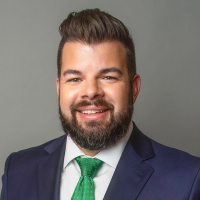TREMONTON, Utah — Charles Holmgren turns on a propane tank and turns on the flame on a nearby burner.
He'll leave it going, while he does other things on his Tremonton farm.
"Typically, it will run from six to 48 hours at a time," Holmgren said.
As the flame burns, silver iodide is drifting into the air. The chemical will try to squeeze a little more precipitation out of a coming winter storm.
"The prevailing winds will pull it over into the mountains from Millard on the south to Beaver Dam on the north," he said in an interview Friday with FOX 13 News.
Holmgren gets paid a little to do some "cloud seeding." It's something he's done for 34 years now, but state officials are looking to do more of as Utah's mega-drought stretches on and the Great Salt Lake hits record lows.
"It's something," Holmgren said. "It’s helping provide additional water whether it’s for drinking water, irrigation water, Great Salt Lake, the bird refuge."
Governor Spencer Cox and Utah's Department of Natural Resources are asking the legislature to dramatically increase funding for cloud seeding generators across the state — from roughly $200,000 now to $1 million. Studies have shown up to 10% more precipitation can be generated out of a winter storm thanks to cloud seeding.
"It's something we can do today to impact our water supply today," DNR executive director Joel Ferry told FOX 13 News.
On Holmgren's farm, the state and the local water district split the cost for the machine. The Utah Department of Natural Resources is looking at automated machines in mountainous areas where access is limited but snowpack is needed most.
Cloud seeding can get more out of a storm, said Dr. Jon Meyer with the Utah Climate Center at Utah State University. The state is a great place to do it.
"We do have to have conditions present that normally would be creating snowfall," he said. "But we're just really amping it up. We're squeezing out a little extra."
The silver iodide chemical is also environmentally safe, he said, but because we can't replicate the same type of cloud twice in the exact same environmental conditions, it's tough to quantify its total effectiveness. The amount of precipitation that Utah gets "is not huge, but it's something," Dr. Meyer said.
The ability to squeeze some extra snowflakes out of a storm is what is appealing to state officials. While it won't be the single solution to a decades-long drought and the rapidly shrinking Great Salt Lake, state leaders say it can be one of many tools.
"It’s one of the best, most effective, cheapest methods we can do to increase our water supply today," said Ferry.
Dr. Meyer said Utah is a great place to do cloud seeding and has been utilizing it for some time. Research shows the amount of precipitation it takes from other areas isn't really a significant factor, he said. Dr. Meyer called the state's decision to expand cloud seeding "fantastic."
But it may be short-lived. USU is involved in research on the effect of climate change on cloud seeding, especially as winter temperatures have warmed and impacted clouds with super-cooled water droplets.
"What we've found is there will eventually be an inflection point, probably around the middle of the century, maybe the back half of the century, where the state's ability to cloud seed and squeeze out moisture in these special types of clouds is going to be limited and will be affected by climate change," he says, adding: "But for right now and certainly over the next few decades, it's vital for us."
Holmgren said he gets a text message telling him when he needs to fire up the cloud seeding generator for the next storm and he goes out and turns it on.
"I feel it is enough of a benefit for me individually as well as my community to participate in this to help improve the water impact," he said.








